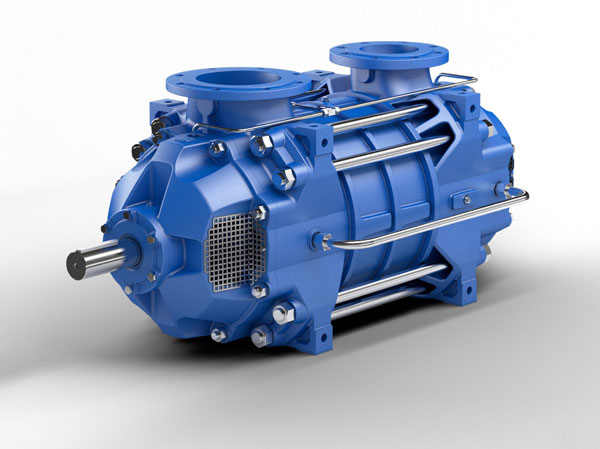High-pressure pumps are vital components in a wide range of industries, providing the power needed to move fluids under significant pressure for various applications. From cleaning and manufacturing to water treatment and oil extraction, high-pressure pumps are indispensable in industries where water or other liquids need to be moved forcefully. These pumps are engineered to generate and maintain pressure to perform tasks that require precision, efficiency, and reliability. In this article, we’ll explore what high-pressure pumps are, how they work, and why they are crucial in different sectors.
What Is a High-Pressure Pump?
A high pressure pump is a mechanical device designed to generate and maintain high fluid pressure to move liquids or gases through pipes or hoses. These pumps are engineered to produce pressures well beyond the capabilities of standard pumps, typically exceeding 1,000 psi (pounds per square inch) and reaching pressures as high as 40,000 psi or more depending on the application.
High-pressure pumps differ from regular pumps due to their design and construction, which allows them to handle intense force without breaking down. They often feature specialized components, such as durable seals, pistons, and valves, to ensure that they can withstand the high stresses and potential corrosive effects of the fluids they handle.
How Do High-Pressure Pumps Work?
The operation of a high-pressure pump varies depending on the type of pump. However, the general principle involves converting mechanical energy into fluid pressure. Most high-pressure pumps operate based on the following mechanisms:
- Positive Displacement Pumps: These pumps work by trapping a fixed amount of fluid and then forcing it through the system under pressure. As the pump moves, it displaces a consistent volume of fluid with each stroke, maintaining a steady flow of fluid at high pressure. These pumps are commonly used when precise flow and high pressure are required.
- Centrifugal Pumps: These pumps use rotating impellers to increase the speed of the fluid and convert that kinetic energy into pressure. While centrifugal pumps are often used in lower-pressure applications, certain designs can achieve relatively high pressures, especially when combined with additional components.
- Plunger and Piston Pumps: These pumps use a piston or plunger to create high pressure within a cylinder and force the fluid into the system. They are particularly effective in applications requiring very high pressure and are commonly used in industrial cleaning, water blasting, and oil extraction.
Types of High-Pressure Pumps
There are various types of high-pressure pumps designed to meet the needs of different industries and applications. Some of the most common types include:
- Reciprocating Pumps: These pumps use a piston or plunger to move fluid through the system, creating high pressure. They are ideal for applications that require steady and precise fluid flow, such as in water jet cutting, oil extraction, and hydraulic systems.
- Diaphragm Pumps: These pumps use a flexible diaphragm that moves back and forth to create pressure. They are often used in chemical and pharmaceutical applications, where handling abrasive or corrosive fluids is essential. Diaphragm pumps are ideal for transfer and dosing of chemicals, as they provide precise control over the flow.
- Triplex Pumps: A triplex pump features three pistons that work in unison to deliver a smooth, continuous flow of fluid at high pressure. These pumps are widely used in high-pressure washing and industrial cleaning systems due to their efficiency and ability to handle abrasive materials.
- Plunger Pumps: These pumps use a reciprocating plunger to force fluid through the system at extremely high pressures. Plunger pumps are often used in heavy-duty applications like water jet cutting, oilfield operations, and other industrial processes where maximum pressure and flow are necessary.
- Plunger and Diaphragm Combination Pumps: Combining the functionality of plunger and diaphragm pumps, these models provide the ability to handle very high pressures while offering versatility in the types of fluids they can process. These hybrid pumps are commonly used in the chemical industry, for water treatment, and other complex applications.
Applications of High-Pressure Pumps
High-pressure pumps are used in numerous applications across various industries. Some of the most common uses include:
- Water Jet Cutting: High-pressure pumps are essential in water jet cutting systems, where a fine stream of high-pressure water is used to cut through metals, stone, and other materials. This technology is highly precise and often used in manufacturing and construction.
- Industrial Cleaning: High-pressure water jets are used for cleaning machinery, vehicles, industrial equipment, and surfaces. The high force of the water stream removes dirt, grime, and even hardened substances like grease or paint, making it an effective solution for cleaning large industrial environments.
- Oil and Gas Industry: High-pressure pumps are essential in oil and gas extraction, where they are used in hydraulic fracturing (fracking) and other drilling operations. These pumps are used to inject fluids into the ground at high pressure to help extract oil and gas from deep underground.
- Water Treatment: High-pressure pumps are used in reverse osmosis (RO) systems to desalinate seawater and remove impurities from water in water treatment facilities. The high pressure forces water through semipermeable membranes, ensuring that the water is purified efficiently.
- Firefighting: High-pressure pumps are used in firefighting applications to deliver water or other fire-suppressant agents under high pressure. These pumps are crucial in both urban and industrial firefighting scenarios, where rapid and effective water delivery is essential.
- Agricultural Spraying: High-pressure pumps are used in agricultural sprayers to deliver pesticides, herbicides, and fertilizers evenly across large fields. The high-pressure system ensures that chemicals are dispersed effectively over vast areas.
Why Are High-Pressure Pumps Important?
High-pressure pumps are critical for ensuring operational efficiency and safety in many sectors. They provide the necessary force to complete tasks that standard pumps simply cannot handle. Here are some reasons why these pumps are so important:
- Efficiency: High-pressure pumps enable precise fluid delivery at high velocities, reducing energy waste and improving system efficiency.
- Safety: In industrial applications, high-pressure pumps help ensure the integrity and safety of systems by preventing leaks, reducing the need for manual intervention, and maintaining pressure.
- Versatility: High-pressure pumps can handle a variety of fluids, including water, chemicals, oils, and abrasive materials, making them versatile tools in numerous industries.
High-pressure pumps are indispensable tools in many industrial and commercial applications, providing the force needed for tasks that require both precision and power. From cutting and cleaning to water treatment and oil extraction, these pumps play a crucial role in improving productivity and efficiency across a range of industries. With their ability to handle extreme pressure and a variety of fluids, high-pressure pumps are not just machines—they are essential components that enable modern industries to thrive.






